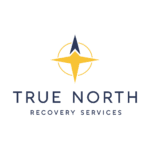Recovery from addiction is a complex journey that involves healing both the body and mind. While many people focus on counseling, support groups, and lifestyle changes, one critical aspect often gets overlooked: sleep quality.
Sleep disorders in recovery are incredibly common, affecting up to 5 times more people during early sobriety than in the general population. Understanding this connection and addressing sleep issues can make the difference between successful long-term recovery and relapse.
Why Do Sleep Problems Occur During Recovery?
The Brain-Sleep Connection in Addiction
When someone uses substances regularly, their brain chemistry changes dramatically. Drugs and alcohol interfere with natural sleep cycles by:
- Disrupting neurotransmitter production
- Altering circadian rhythms
- Creating artificial sleep patterns
- Damaging brain regions responsible for sleep regulation
Withdrawal and Sleep Disruption
During withdrawal, the brain struggles to restore its natural balance. This leads to:
Common withdrawal-related sleep issues:
- Difficulty falling asleep
- Frequent nighttime awakening
- Vivid, disturbing dreams
- Early morning awakening
- Daytime fatigue despite time in bed
Most Common Sleep Disorders in Recovery
1. Insomnia
What is it? Difficulty falling asleep, staying asleep, or both.
Recovery impact: Chronic insomnia affects 25-80% of people in early recovery, compared to 10-15% of the general population.
Duration: Can persist for months or even up to 2 years in some individuals.
2. Sleep Apnea
What is it? Breathing repeatedly stops and starts during sleep.
Recovery connection: Substance use can worsen sleep apnea symptoms, and withdrawal may reveal previously masked breathing issues.
3. Restless Leg Syndrome (RLS)
What is it? Uncomfortable sensations in the legs cause an irresistible urge to move them.
Why it matters: It often emerges during opioid withdrawal and can significantly disrupt sleep quality.
4. Circadian Rhythm Disorders
What is it? Misalignment between the internal body clock and the external environment.
Recovery relevance: Drugs and alcohol severely disrupt natural sleep-wake cycles, requiring time to reset.
How Sleep Disorders Impact Recovery Success
The Relapse Risk Factor
Poor sleep creates a dangerous cycle:
| Sleep Problem | Impact on Recovery | Relapse Risk |
|---|---|---|
| Chronic insomnia | Increased stress, poor judgment | 3x higher risk |
| Sleep deprivation | Weakened willpower, emotional instability | 2.5x higher risk |
| REM sleep disruption | Memory consolidation issues | 2x higher risk |
Cognitive and Emotional Effects
Sleep disorders in recovery significantly impact:
Cognitive Function:
- Reduced concentration and focus
- Impaired decision-making abilities
- Memory problems
- Slower reaction times
Emotional Regulation:
- Increased irritability and mood swings
- Higher anxiety levels
- Depression symptoms
- Reduced stress tolerance
Physical Health Consequences
Poor sleep during recovery also affects physical healing:
- Weakened immune system
- Slower tissue repair
- Increased inflammation
- Hormonal imbalances
- Cardiovascular stress
Why Quality Sleep is Essential for Healing
Brain Recovery and Neuroplasticity
During sleep, the brain:
- Removes toxins accumulated during the day
- Consolidates memories and learning
- Repairs damaged neural pathways
- Strengthens new, healthy connections
Recovery insight: Sleep is important in memory consolidation and the process of extinction, so sleep dysfunction might interfere with the learning of non-reinforced drug associations needed for recovery.
Stress Hormone Regulation
Quality sleep helps regulate cortisol and other stress hormones that can trigger cravings and impulsive behavior.
Immune System Support
Sleep strengthens the immune system, helping the body recover from the physical damage caused by substance use.
Common Questions About Sleep and Recovery
How long do sleep problems last in recovery?
Sleep issues typically improve within the first few months of sobriety. However, in heavy drinkers with alcohol use disorder, sleep dysfunction may persist up to 2 years into recovery in a subset of individuals and is a risk factor for relapse.
Can sleep medications help during recovery?
Sleep medications should be used cautiously in recovery, as many have addiction potential. Always consult with addiction-informed healthcare providers who understand the unique needs of people in recovery.
What’s the difference between normal sleep difficulties and a sleep disorder?
Normal adjustment sleep issues typically improve within 2-4 weeks. If sleep problems persist beyond a month or significantly impact daily functioning, professional evaluation is recommended.
Do all substances affect sleep the same way?
No, different substances impact sleep differently:
- Alcohol: Initially sedating but disrupts REM sleep
- Stimulants: Cause insomnia and fragmented sleep
- Opioids: Suppress REM sleep and cause respiratory issues
- Cannabis: Cannabis causes sleep problems in more than 40% of those trying to quit
Effective Treatment Strategies for Sleep Disorders in Recovery
Cognitive Behavioral Therapy for Insomnia (CBT-I)
CBT-I is considered the gold standard for treating insomnia without medications. This approach includes:
- Sleep restriction therapy
- Stimulus control
- Relaxation techniques
- Sleep hygiene education
- Cognitive restructuring
Sleep Hygiene Fundamentals
Essential sleep hygiene practices:
- Maintain consistent sleep and wake times
- Create a cool, dark, quiet sleep environment
- Avoid caffeine 6+ hours before bedtime
- Limit screen time 2 hours before sleep
- Develop a relaxing bedtime routine
- Use the bedroom only for sleep and intimacy
Medical Interventions
When necessary, healthcare providers may recommend:
Non-addictive sleep aids:
- Melatonin supplements
- Magnesium
- Valerian root
- Prescription options with low abuse potential
Treatment of underlying conditions:
- Sleep apnea devices (CPAP)
- Restless leg syndrome medications
- Circadian rhythm light therapy
Lifestyle Modifications
Exercise and Recovery:
- Regular physical activity improves sleep quality
- Avoid vigorous exercise 4 hours before bedtime
- Morning sunlight exposure helps regulate circadian rhythms
Nutrition and Sleep:
- Avoid heavy meals close to bedtime
- Consider sleep-promoting foods (cherries, nuts, herbal teas)
- Stay hydrated but reduce fluids 2 hours before sleep
Creating a Sleep-Friendly Recovery Environment
Bedroom Optimization
Transform your sleep space into a recovery sanctuary:
- Remove triggers and substances
- Invest in comfortable bedding
- Control temperature (65-68°F optimal)
- Use blackout curtains or eye masks
- Consider white noise machines
Technology Boundaries
Digital devices can significantly impact sleep quality:
- Use blue light filters after sunset
- Charge devices outside the bedroom
- Replace phone alarms with traditional alarm clocks
- Establish “digital sunset” times
Supporting Long-Term Recovery Through Better Sleep
Building Healthy Sleep Habits
Recovery is about creating new, healthy patterns. Prioritizing sleep helps:
- Establish routine and structure
- Improve stress management
- Enhance emotional regulation
- Support physical healing
- Increase treatment engagement
The Role of Support Systems
Family and friends can help by:
- Understanding sleep challenges in recovery
- Respecting sleep schedules
- Creating quiet evening environments
- Encouraging professional help when needed
Professional Help: When to Seek Treatment
Red Flag Symptoms
Seek immediate professional help if experiencing:
- Chronic insomnia lasting more than 3 weeks
- Severe daytime fatigue affecting safety
- Signs of sleep apnea (loud snoring, gasping)
- Sleep-related panic attacks
- Thoughts of using substances to sleep
Treatment Team Approach
Effective sleep treatment in recovery often involves:
- Addiction counselors
- Sleep medicine specialists
- Primary care physicians
- Mental health professionals
- Peer support specialists
How True North Recovery Services Supports Your Journey
At True North Recovery Services, we understand that recovery is a multifaceted approach that addresses all aspects of healing, including sleep health. Located in the Denver Metro Area, our comprehensive outpatient addiction treatment program recognizes the critical role that quality rest plays in successful recovery.
Our Holistic Approach to Recovery
We offer compassionate care with a foundation built on kindness, respect, and unwavering support for those facing:
- Opioid Use Disorder (OUD)
- Alcohol Use Disorder (AUD)
- Other Substance Use Disorders
Our evidence-based treatment model blends:
- Comprehensive medical care that addresses sleep disorders and related health issues
- Recovery support services that include sleep hygiene education
- Individualized treatment plans that recognize sleep as a crucial component of healing
- Holistic approaches that encourage exploring new pathways supporting recovery
Why Sleep Matters in Our Treatment Philosophy
Our mission is to facilitate your journey away from substance abuse to discovery of self. We recognize that quality sleep is essential for:
- Cognitive function and decision-making
- Emotional regulation and stress management
- Physical healing and immune system recovery
- Memory consolidation of healthy coping strategies
We understand that treatment is deeply personal and not a one-size-fits-all process. Our experienced clinical team uses validated research and patient insights to deliver exceptional outcomes through our user-friendly approach.
Key Takeaways for Better Sleep in Recovery
Remember These Essential Points:
- Sleep disorders in recovery are normal – you’re not alone in this struggle
- Quality sleep directly impacts recovery success – it’s not a luxury, it’s necessary
- Professional help is available – don’t suffer in silence
- Patience is key – sleep patterns take time to normalize
- Holistic approaches work best – combine multiple strategies for success
Your Sleep Recovery Action Plan:
Week 1-2: Focus on basic sleep hygiene and establishing routines
Week 3-4: Add relaxation techniques and stress management
Month 2-3: Consider professional evaluation if problems persist
Ongoing: Maintain healthy sleep habits as part of recovery lifestyle
Conclusion: Rest as a Foundation for Lasting Recovery
Sleep disorders in recovery present significant challenges, but they are entirely manageable with the right approach and support. Understanding the connection between sleep and addiction recovery empowers you to take control of this crucial aspect of healing.
Quality sleep isn’t just about feeling rested – it’s about giving your brain and body the time they need to heal from the effects of substance use. Sleep disturbance offers advantages when investigating predictors of addiction treatment outcome, and with proper assessment and targeted sleep-related interventions, treatment providers can increase the likelihood of successful outcomes.
Remember, seeking help for sleep problems during recovery is a sign of strength, not weakness. Every night of quality sleep is an investment in your long-term recovery success.
If you’re struggling with sleep issues during recovery, don’t wait. Professional support can make a dramatic difference in both your sleep quality and overall recovery outcomes. With patience, proper treatment, and consistent effort, you can overcome sleep challenges and build the strong foundation of rest that lasting recovery requires.
Take the first step toward better sleep and stronger recovery today. Your future self will thank you for prioritizing this essential component of healing.


